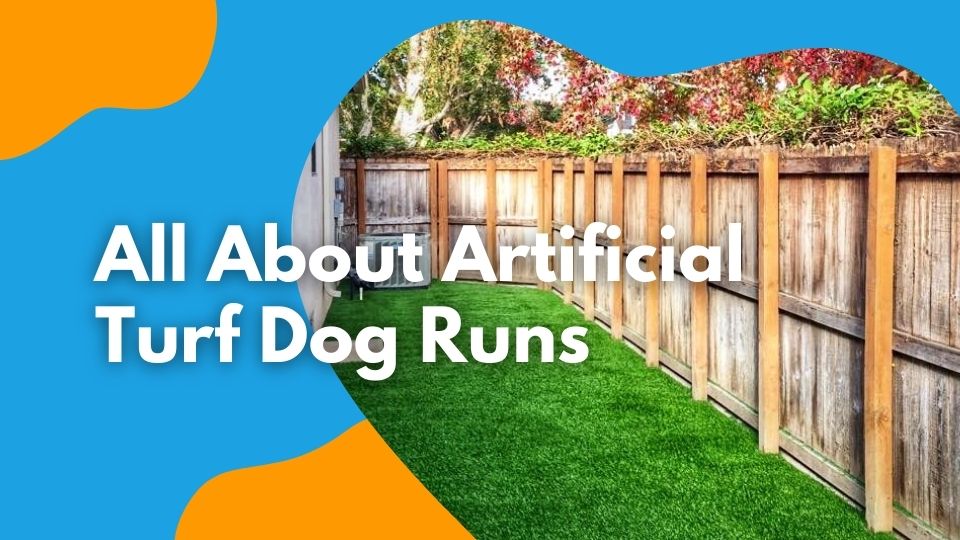
Building a dog run and pairing it with pet-friendly fake grass can create the perfect space to offer your pup some fresh air and exercise without the need for constant...
The biggest concern our clients have when researching a pet turf system is the temperature of the surface. Below we'll talk about what features look for to attain the coolest space for your furry friends!
This answer is easy. Artificial pet turf is completely safe and lead-free! Manufacturers provide certificates with their products, so we can confirm this. It's also incredibly difficult for dogs to chew, dig up, or ingest artificial grass. Only a very persistent dog will succeed in tearing through the thatch, infill, and two to three layers of backing. To find the answer to other frequently asked questions regarding pet turf installation, check out our FAQ page.
The short answer is yes. K9 turf is made of polyethylene. It absorbs heat and can reach temperatures as high as 120F. This can be hot to the touch, becoming a discomfort for you and your pets. Because we want comfort to be top of mind, manufacturers try to reduce the heat of the surface as much as physically possible. Some will coat artificial turf with heat-reflecting layers, while others reduce the density of the backing material.
We have visited hundreds of backyards and pet facilities and research materials from various suppliers. From our experiences, we believe there are multiple factors that affect the temperature of artificial grass. We cannot guarantee that these statements are 100% true, they are just our observations.
A pet turf system with a cooler surface will be lime green, have a low pile, with a 60-ounce wide shape. Stronger and thinner blades with space in between them are ideal for airflow and can be stabilized with antibacterial sand or a mix of antibacterial sand and turf deodorizer. This will still become warm on high-temperature days, but it's bearable.
Typically, a pet turf system runs the risk of being warmer if it's dark green, with a high pile, and 90-ounce slim blades. We also recommend avoiding diamond blade turf with green-colored silica infill, it’s hot as hell and will burn the feet right away.
We created a turf lab testing popular artificial grasses in terms of temperature. To hear our findings and learn the coolest turf options for pets, check out our article here!
Unlike concrete, artificial turf cools down within minutes when wind, evaporation, or shade is a factor. We suggest the following methods:
To hear more tactics and ways to cool the surface of your artificial lawn, check out our other article!
And there you have it, our recommendations when attempting to achieve the coolest surface for your pet turf system. Remember, your dogs can't express discomfort in the same way we can. For this reason, we don't recommend leaving them outside unsupervised for long periods of time on hot days. If you have any further questions, feel free to give us a call!

Building a dog run and pairing it with pet-friendly fake grass can create the perfect space to offer your pup some fresh air and exercise without the need for constant...